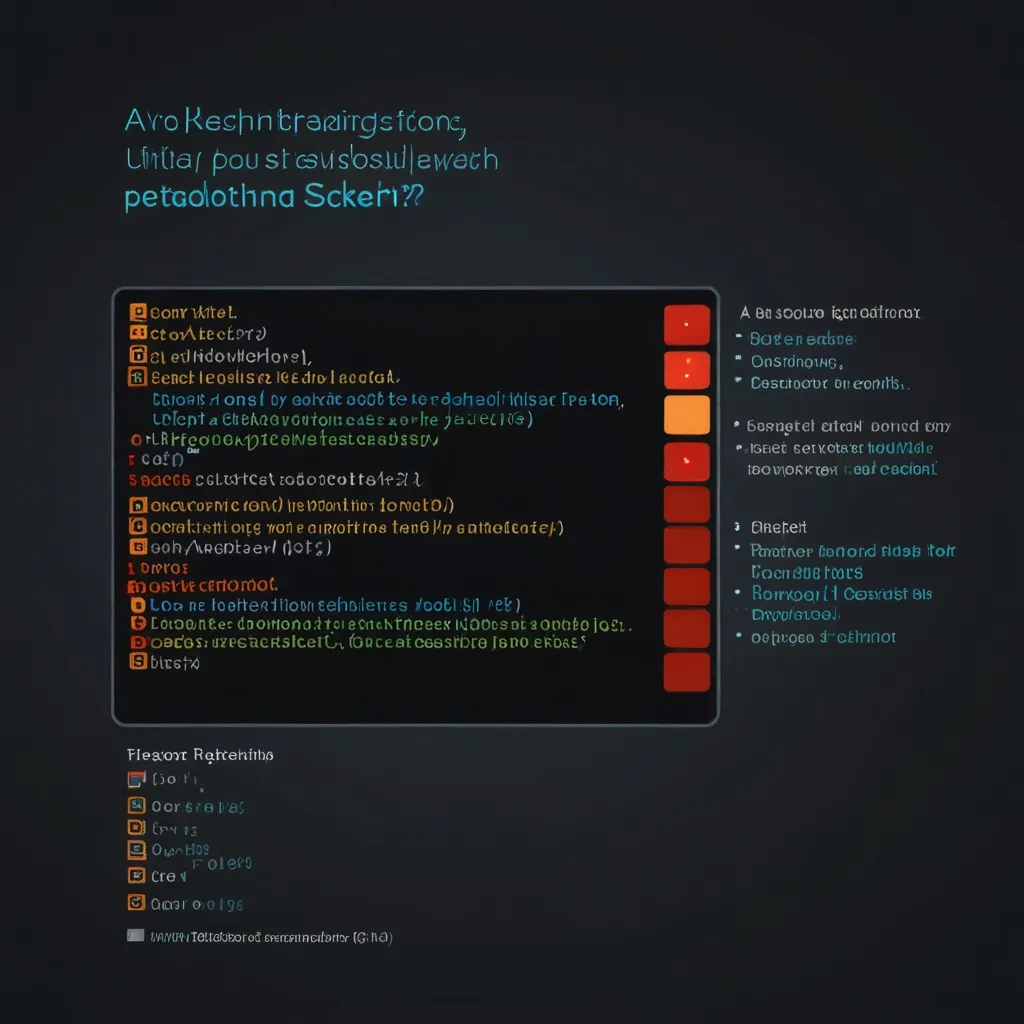Python’s decorators are awesome, but did you know you can create your own custom annotation system? It’s like giving your code superpowers! Let’s dive into how we can take things to the next level.
Annotations in Python are pretty cool. They let us add extra info to our functions and classes without changing how they work. But what if we could make our own annotation system that does even more? That’s where custom annotations come in.
Think of custom annotations like sticky notes for your code. You can use them to add all sorts of useful information or even change how your code behaves. It’s like having a secret language that only your program understands.
To get started with custom annotations, we need to use Python’s built-in annotation system as a foundation. Here’s a simple example:
def greet(name: str) -> str:
return f"Hello, {name}!"
In this case, we’re using Python’s standard annotations to say that name should be a string and the function returns a string. But we can take this further!
Let’s create a custom annotation that checks if a function’s arguments are valid:
def validate(*types):
def decorator(func):
def wrapper(*args):
for arg, t in zip(args, types):
if not isinstance(arg, t):
raise TypeError(f"Expected {t}, but got {type(arg)}")
return func(*args)
return wrapper
return decorator
@validate(str, int)
def introduce(name, age):
return f"I'm {name} and I'm {age} years old."
print(introduce("Alice", 30)) # Works fine
print(introduce("Bob", "twenty")) # Raises TypeError
This custom annotation system checks if the arguments match the specified types. It’s like having a bouncer for your functions!
But why stop there? We can create annotations that do all sorts of cool things. How about an annotation that measures how long a function takes to run?
import time
def measure_time(func):
def wrapper(*args, **kwargs):
start = time.time()
result = func(*args, **kwargs)
end = time.time()
print(f"{func.__name__} took {end - start:.2f} seconds to run.")
return result
return wrapper
@measure_time
def slow_function():
time.sleep(2)
return "I'm slow!"
slow_function()
This annotation will tell us how long our function took to run. It’s like having a stopwatch for your code!
Now, let’s get really fancy and create an annotation system that can handle multiple custom annotations:
class Annotation:
def __init__(self, func):
self.func = func
self.annotations = []
def __call__(self, *args, **kwargs):
for annotation in self.annotations:
args, kwargs = annotation(self.func, args, kwargs)
return self.func(*args, **kwargs)
def add_annotation(self, annotation):
self.annotations.append(annotation)
return self
def log_call(func, args, kwargs):
print(f"Calling {func.__name__} with args: {args}, kwargs: {kwargs}")
return args, kwargs
def validate_types(*types):
def validator(func, args, kwargs):
for arg, t in zip(args, types):
if not isinstance(arg, t):
raise TypeError(f"Expected {t}, but got {type(arg)}")
return args, kwargs
return validator
@Annotation
def greet(name, age):
return f"Hello, {name}! You are {age} years old."
greet.add_annotation(log_call)
greet.add_annotation(validate_types(str, int))
print(greet("Alice", 30))
This system allows us to stack multiple annotations on a single function. It’s like building a sandwich of code enhancements!
Custom annotations can be super useful for all sorts of things. You could use them for:
- Automatic documentation
- Input validation
- Caching results
- Access control
- Logging and debugging
- Performance monitoring
- Dependency injection
The possibilities are endless! It’s like having a Swiss Army knife for your code.
But remember, with great power comes great responsibility. Don’t go overboard with annotations. They should make your code clearer and more efficient, not turn it into a tangled mess.
One cool thing about custom annotations is that they’re not just for Python. Many other languages have similar concepts. In Java, they’re called annotations, and in JavaScript, they’re often implemented using decorators (which are coming soon to the language).
Here’s a quick example of how you might use annotations in Java:
@Retention(RetentionPolicy.RUNTIME)
@Target(ElementType.METHOD)
@interface LogExecutionTime {
}
public class MyClass {
@LogExecutionTime
public void myMethod() {
// Method implementation
}
}
And in JavaScript (using the proposed decorator syntax):
function logExecutionTime(target, name, descriptor) {
const original = descriptor.value;
descriptor.value = function(...args) {
console.time(name);
const result = original.apply(this, args);
console.timeEnd(name);
return result;
};
return descriptor;
}
class MyClass {
@logExecutionTime
myMethod() {
// Method implementation
}
}
Custom annotations are like secret ingredients in your coding recipe. They can add flavor, improve performance, and make your code more robust. But like any powerful tool, use them wisely!
I remember when I first discovered custom annotations. It was like finding a hidden level in a video game. Suddenly, I could do all these cool tricks with my code that I never thought possible before. It opened up a whole new world of possibilities.
One time, I used custom annotations to create a simple permission system for a web application. Instead of cluttering my route handlers with checks, I could just slap an @requires_admin annotation on sensitive functions. It made the code so much cleaner and easier to maintain.
Custom annotations can also be great for team collaboration. You can create annotations that enforce coding standards or add helpful information for other developers. It’s like leaving helpful post-it notes all over your codebase.
In conclusion, custom annotations are a powerful tool that can take your Python programming to the next level. They allow you to extend the language in ways that suit your specific needs, making your code more expressive, efficient, and fun to write. So go ahead, give custom annotations a try in your next project. Who knows what cool features you might come up with!






